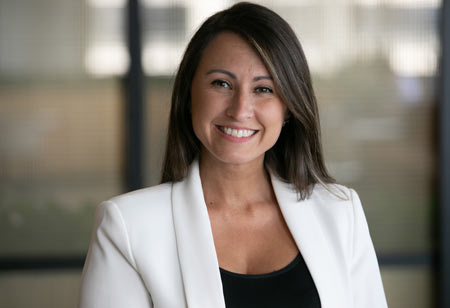At Sunday family lunch a few weeks ago, mum asked what was keeping me busy at work. For those in financial services, you’d appreciate how loaded that question is. So rather than going deep, I went for the laundry list of what I thought was relatable ‘stuff’ instead - annual budgeting cycles, planning for the year ahead and so on. My brother was suitably confused, “Aren’t you a head of wealth or something? What do you actually do?”
We all laughed because, that’s pretty typical of my brother.
To save you the blow by blow of what came next, the upshot is that my family thought I dealt with ‘rich people’ who basically wanted to get more rich. Given that couldn’t be further from the truth, it got me thinking about the word ‘wealth’ and the connotation it has to the everyday Australian.
Google will tell you that the word wealth means ‘an abundance of valuable possessions or money’. But my personal definition is quite different. Wealth to me means being financially free which is completely personal to each individual depending on their goals. If I wanted to have a fancy meal every so often, or pay my mortgage on time without stress, then achieving those goals should make me feel pretty financially fit, right? Or finally being in a position to buy that new car, or pay for my child’s schooling without going into debt, both things that should make me feel good about my financial health.
But the reality is that with the cost of living going up, our slow recovery - both mentally and financially due to heavy lockdowns, unrest in global political and economic environments, and catastrophic weather events unfolding in our own backyard, the average Aussie today is probably more cautious about their financial circumstances than what they may have been a few years ago – at least from the BBQ conversations I have been having.
“In banking and financial services, providers have a critical role to play in supporting people to achieve their financial freedom, especially when you consider the mandatory nature of superannuation, and the ability to grow discretionary wealth through various types of investments”
Financial advisers I have been speaking to indicate their phones continue to ring off the hook. Research conducted by a financial content Fintech out of the UK shows that over 30 million people started investing in fee-free broking apps at the start of COVID-19. Our own research at ING Australia tells us lots of Aussies think they ‘should be doing more’ to build their wealth, but don’t have a clue where to start.
The common thread between these three examples is that all are borne from the pursuit of financial freedom – and not the need to be (the traditional definition of) wealthy.
In banking and financial services, and in particular within the wealth sector, providers have a critical role to play in supporting people to achieve their financial freedom, especially when you consider the mandatory nature of superannuation, and the ability to grow discretionary wealth through various types of investments.
Of course, understanding people’s goals, supporting good decision making, engaging on their terms, digitising to drive efficiency for everyone, and injecting a human touch when things get complex are all important. But ultimately, isn’t it about resetting mindsets around what financial freedom actually is, how it can be achieved, and why that is a better, more realistic goal than being old-school wealthy?
Because I say those BBQ conversations would be pretty different, and much more uplifting, if people felt my definition of wealthy instead.












